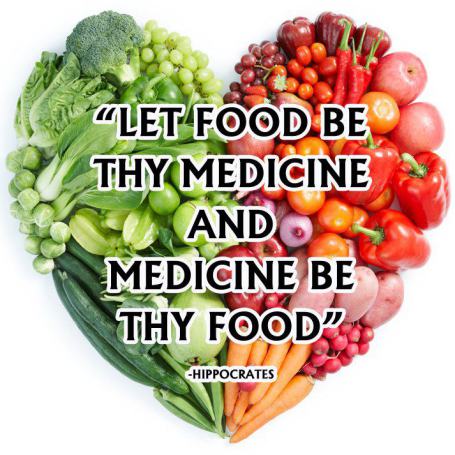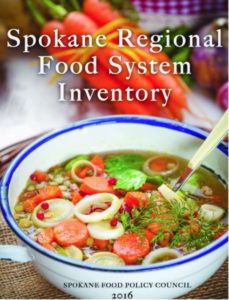By Torie Foote, President, Spokane Food Policy Council and Co-owner Footehill Farm, Colbert, WA.
 The right food is as important to the body as the right gas is for a car. We have gotten to believe that only a doctor’s prescription for a pharmaceutical is really what is going to make us well when in fact, the opposite is often true. Many of us have reactions to pharmaceuticals because, although based on plants, they have increased the potency of the chemical to a point that is often too strong for many of us. Also, the built-in safeguards that plant-based chemicals often have are removed in a lab-produced chemical that only mimics the plant.
The right food is as important to the body as the right gas is for a car. We have gotten to believe that only a doctor’s prescription for a pharmaceutical is really what is going to make us well when in fact, the opposite is often true. Many of us have reactions to pharmaceuticals because, although based on plants, they have increased the potency of the chemical to a point that is often too strong for many of us. Also, the built-in safeguards that plant-based chemicals often have are removed in a lab-produced chemical that only mimics the plant.
So back to food: If we listen to our bodies, we can often figure out what helps us, what hurts us, and learn to adjust what we eat accordingly. In this day of fast food and “keep it easy” we often skip real food and go for the processed stuff. Processed food producers have focused a lot on making food cheap and easy with tastes that we crave. All that sounds good except most of it is “fake food” and many times it doesn’t even contain the food it is mimicking. What does it have? Usually it is high in salt or sugars, they also go for cheap ingredients and use things like soy-based food or corn syrup. Ingredients are usually not organic, and most are made in laboratories. What does that matter if it tastes good? Well, it is those ingredients that are driving up our weight, cholesterol, and blood pressure and leading us into diabetes, cancer and heart disease. These illnesses are skyrocketing in our country because we are eating too much of these processed foods. Our populations are also the heaviest they have ever been.
So how can food be medicine then? If we want to protect our bodies, we really need to focus on organic food and if possible, eat locally. There is a growing body of evidence (science) about the micro-organisms that are found in soil and their relationship with our health. If we live where we eat or eat where we live, it is better for our guts. When our guts are happy, our bodies generally are doing what they should be doing.
So why is organic important? Much of the wheat in our country is laced with Roundup (glyphosate herbicide) as are soy and other products grown by industrial agriculture. Glyphosate has been proven to be cancerogenic. If you buy non-organic chicken, it could be high in arsenic. Beef that is not raised on pasture grass is overly “fat” and not as balanced (their guts can not do what they were designed to do when fed on grain). And have you tasted an organic farm raised turkey versus the factory ones? There is no comparison in taste and nutrients! Vegetables that are pushed to be big and “perfect” are often “empty” of key vitamins and minerals. So, you end up eating a lot of cellulose.
Organics are grown in good soil and they are higher in vitamin and minerals─ extremely important for us. Organics usually can store longer even if they are not picture perfect. Organics do not contain traces of the heavy metals and poisons so often used in factory farms.
So, what foods do we want to be eating? Our grandparents used to use every part of a chicken or other meat product. This means they enjoyed a roast or whole chicken and then worked through the meat in multiple meals working down to the bones. Then bones became bone broth which eaten plain or as a full-bodied soup (with many ingredients) is very strong in key minerals and vitamins with very strong healing properties. Bone broth when given to people fighting colds, flu or other illnesses is very effective. Onions, garlic and peppers helps our bodies build their immunity and fight cancers. Mushrooms can also fight cancer and build the body’s ability to prevent many illnesses. The more fiber (fruit and vegetables) you consume the more it acts like a binder to pull out and eliminate those elements that are not good for your system (including pharmaceutical medicines).
To hear more about this, tune into a podcast by People’s Pharmacy called “Food as Medicine.” The medical field is beginning to tune in to this important aspect of eating real food.
References:
People’s Pharmacy podcast on Food As Medicine.
Book & website: Food As Medicine by Sue Radd, foodasmedicine.cooking
Book: Food As Medicine: TheTheory and Practice of Food by Todd Caldecott, Copy right 2011.


